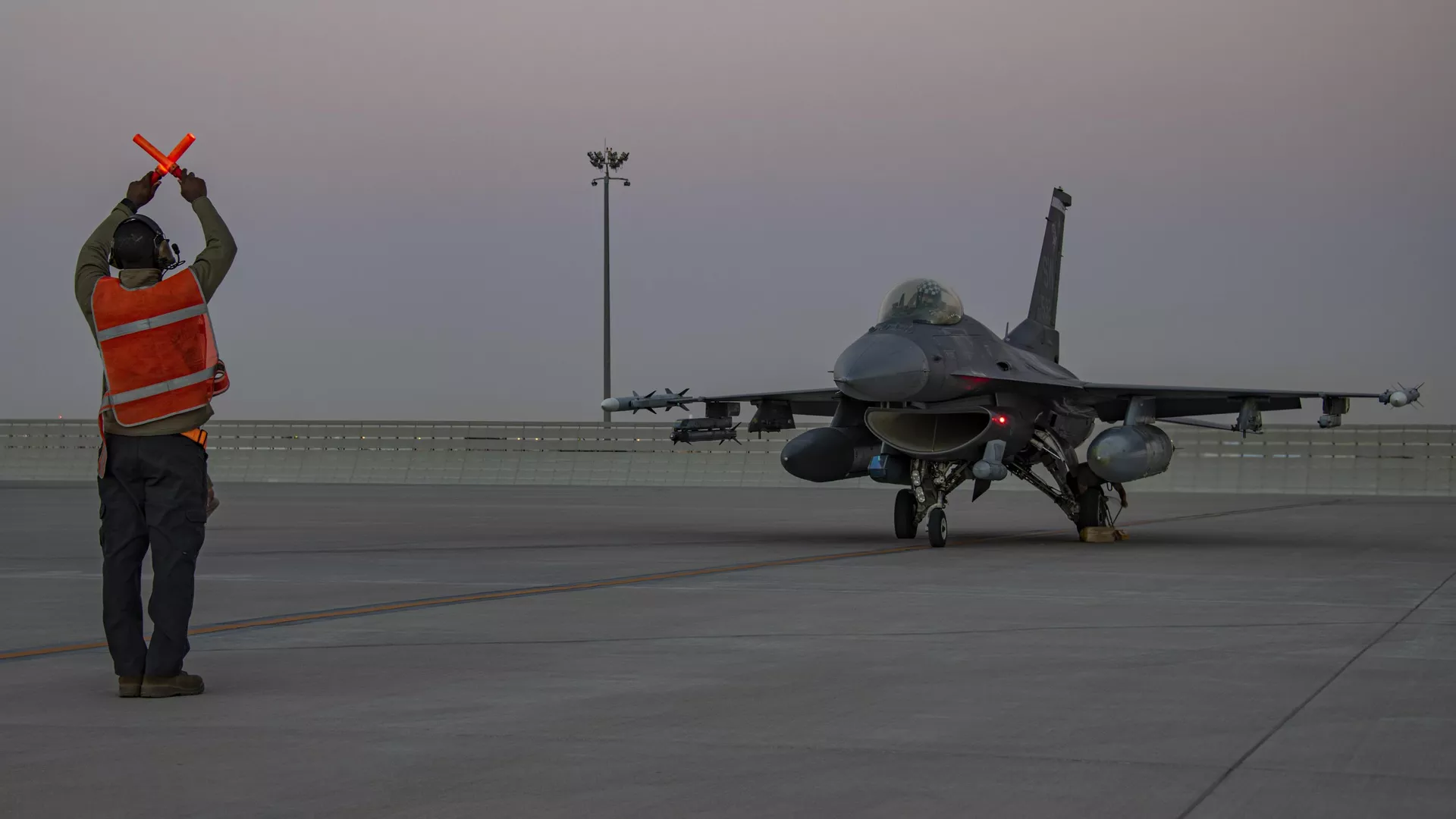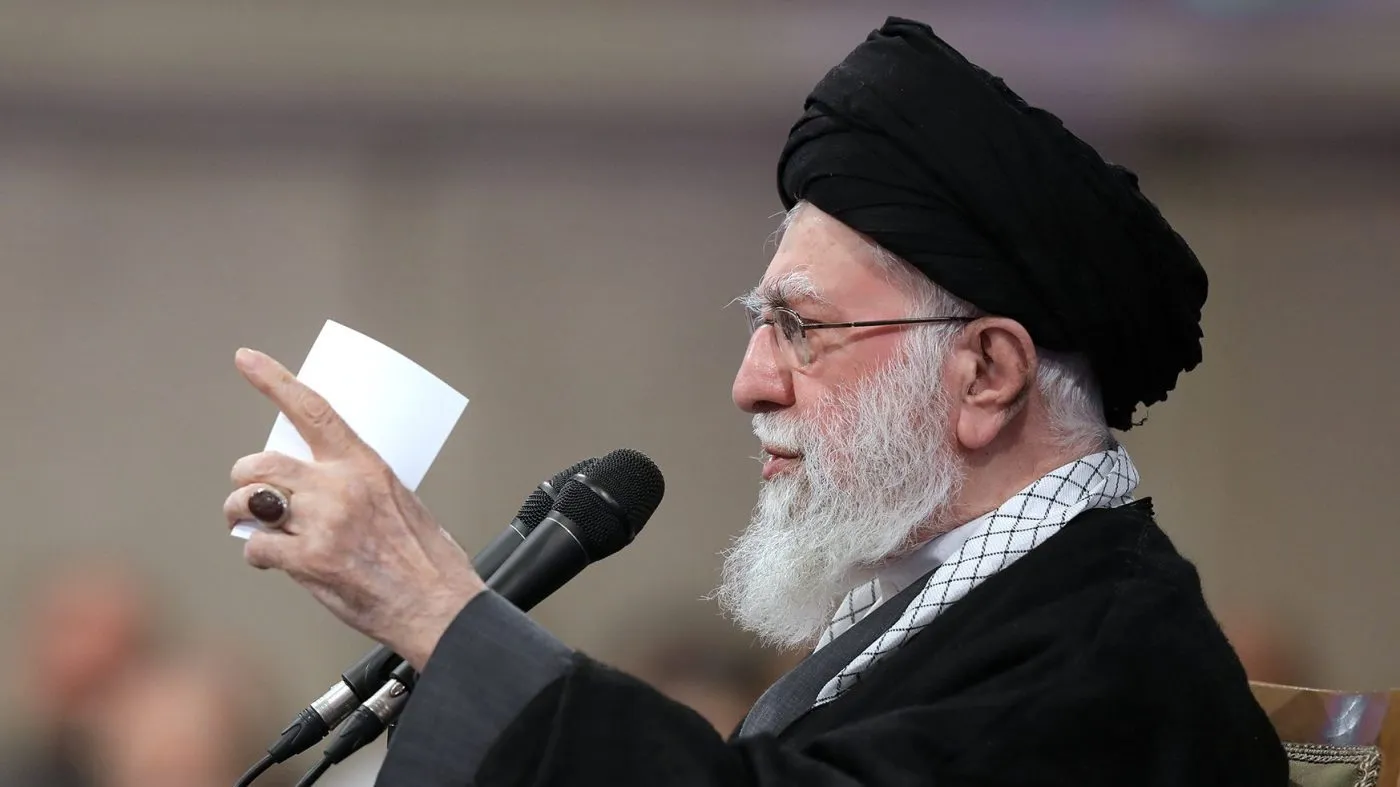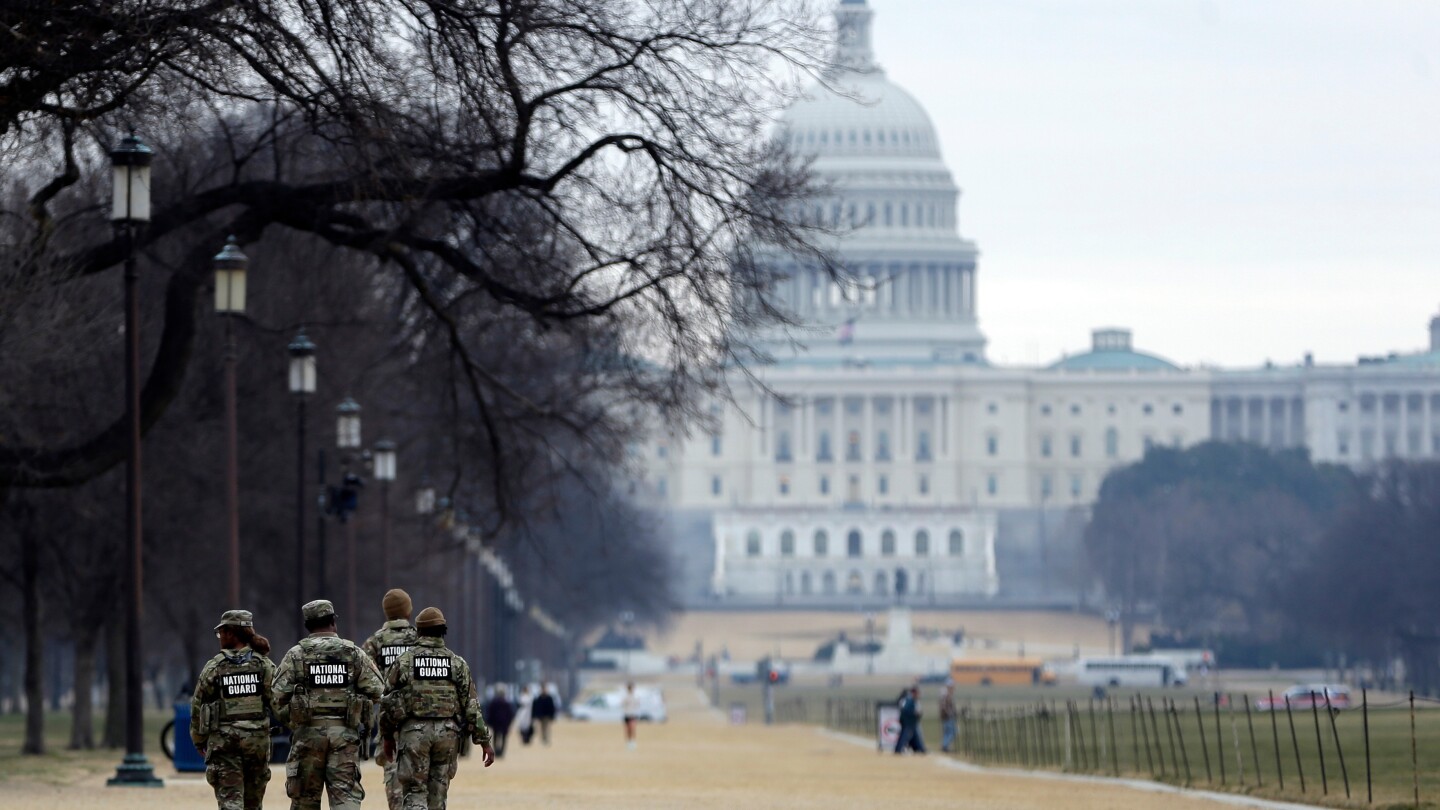The Islamic Revolutionary Guard Corps launched ballistic missiles at targets Tehran says were affiliated with Mossad and IS* Monday night and early Tuesday morning. The US slammed the “reckless” attacks, but said no US facilities were hit. Have the missile strikes put Tehran and Washington on a path to war? Sputnik asked leading Mideast observers.
A US National Security Council spokesperson characterized Iran’s missile strikes as “reckless and imprecise,” and said Washington would “continue to assess the situation.” Separately, a State Department spokesperson “strongly condemned” Iran’s attacks into Iraq, accusing Tehran of “undermining” Iraq’s stability.
Iranian Foreign Ministry spokesman Nasser Kanaani said Tuesday that the twin IRGC attacks in Syria and Iraq were launched in defense of Iran’s sovereignty and security, as well as countering terrorism.
“The Islamic Republic has always supported peace, stability and security in the region and respected other countries’ sovereignty. Nonetheless, Tehran will not hesitate to exercise its legitimate and legal right to deter all sources of threats against its national security, defend its citizens and punish the criminals,” Kanaani emphasized.
US ‘Not Ready’ for Confrontation
With US power in the Middle East under threat and Washington facing a multi-front series of crises of its own making across the globe, from the Middle East to Eastern Europe to Asia, America simply isn’t prepared for an exchange of blows with Iran, Nikolai Surkov, a researcher with the Center for Middle Eastern Studies at the Moscow-based Institute of World Economy and International Relations, told Sputnik.
“The United States, in general, is trying to avoid direct confrontation with Iran, and quite openly pretend that nothing bad has happened. Rather, their policy is that so long as there are no major casualties on their part, there’s no need to start a big conflict. For now, the Americans are not ready to butt heads with Iran and are not interested in this. They already have enough problems with Gaza and now with Yemen. Unless something out of the ordinary happens…for example, an Iranian attack on some American warships, war is unlikely,” Surkov believes.
As for Iran’s missile strikes, the researcher recalled that the Islamic Republic “always” uses force “in a very measured way,” and said Tehran has similarly consistently demonstrated “absolutely no interest in a major conflict with either Israel or the United States.”
“On the one hand, Iran is trying to keep its adversaries in suspense, using allies, proxies, but Tehran also does not need a direct conflict now. What we are seeing in the Middle East is a very subtle, very complex maneuver, a very complex ballet, if you like. All sides exchange blows, but try to keep the confrontation below the level of a major war, which no one needs. They’re trying to change the balance of power in their favor using various hybrid tools and proxies, but no one benefits from a big war. Therefore, the question is whether and how long they can remain in this gray zone between peace and war,” Surkov stressed.
Only One Country Interested in Iran-US Conflict
Center for Middle East Studies director Semyon Bagdasarov agreed with Surkov’s assessment that neither Tehran nor Washington want war, adding that if a conflict is unleashed, it could be started by a third party.
“[The possibility of a conflict] is not related to Iran’s targeting of…Erbil. But such a possibility exists, and is based in the behavior of Israeli Prime Minister Netanyahu, who is ignoring the Americans, who are not every interested in the big war,” especially in an election year, Bagdasarov told Sputnik.
“Under what conditions is a direct war between the US and Iran possible? Only after strikes against the territory of Iran. Moreover, I wouldn’t be surprised if the strikes came not from the Americans, but from Israel. Israel has the means to deliver various types of weapons, including nuclear weapons, to Iran. These are the so-called Jericho-3, Jericho-4 missiles (Jericho-1 and Jericho-2 are not suitable in terms of range), as well as the Dolphin-class submarines…which have cruise missiles. As for the use of Israeli aviation, it’s doubtful. Without the Americans they will not be able to use it, because the refueling tankers are American,” the observer said.
In short, Bagdasarov believes that “if there is a war, it will be provoked by Israel,” since the US has its hands full looking to stop Lebanon’s Hezbollah from joining the Palestinian-Israeli conflict, and trying to deal with the Houthis’ campaign to close the Red Sea.
As for the attacks on Erbil, Bagdasarov emphasized that this wasn’t the first time the IRGC has targeted its adversaries in Iraqi Kurdistan, with similar attacks in 2022 and 2023, targeting suspected US and Israeli assets, as well as Kurdish separatists. Separately, Iran lobbed ballistic missile at two US bases in Iraq in January 2020 in response to the unprovoked assassination of IRGC Quds Force Commander Qasem Soleimani, leaving over 100 US servicemen and women with traumatic brain injuries.
Expanding Geography of Chaos
Stanislav Tarasov, a political observer and Mideast specialist, told Sputnik that Iran’s strikes signal “an expansion of the geography of the destabilization of the Middle East,” with the Hamas-Israel and Hezbollah-Israel, Syrian, Yemeni and Red Sea crises now added to by the potential “destabilization” of Iraq, “which is teetering on the brink of collapse and division into three parts.”
“It’s no coincidence that the Iraqi government, which earlier demanded that the Americans withdraw their forces from the country…has now asked the Americans to maintain their presence,” Tarasov emphasized.
Missile Strikes Target Mossad, Jihadists
The IRGC bombarded Syria-based facilities used by IS terrorists Monday night in response to twin terror attacks against the Iranian cities of Rask and Kerman in mid-December and early January, announcing the liquidation of key terrorist leaders and militants in the attack.
Separately, in the early hours of Tuesday morning, the IRGC confirmed that it had struck “one of the main Mossad headquarters” used to “develop espionage operations and plan acts of terrorism” in Erbil, northern Iraq. The latter attack was carried out “in response to the recent atrocities of the Zionist regime,” according to the IRGC – specifically an Israeli airstrike in a Damascus suburb which killed a senior IRGC advisor on December 25, 2023, and assassinations of IRGC and “Resistance Front” commanders. The IRGC hailed its precision missile attacks as proof of its “full intelligence superiority” over Israel in the region.
Iraqi Kurdish officials reported that four people were killed and six others injured in the Erbil strike, which hit within earshot of the US Consulate General building and Erbil’s international airport. US officials assured that its facilities were not targeted or damaged, and reported no injuries or casualties.
Pro-US Iraqi Kurdistan Prime Minister Masrour Barzani condemned Iran’s “cowardly attack” on Tuesday, urging the federal government in Baghdad to “take a principled stand against the flagrant violation of Iraq’s and the Kurdistan Region’s sovereignty.” Iraq’s Foreign Ministry announced Tuesday that it would pursue “legal measures,” including filing a complaint with the United Nations Security Council. Prime Minister Mohammed Shia’ al-Sudani has yet to comment on the incident publicly, but has reportedly ordered the creation of a security committee to probe the incident. President Abdul Latif Rashid urged for security issues between Iran and Iraq to be addressed “through constructive dialogue, not through military attacks.”




